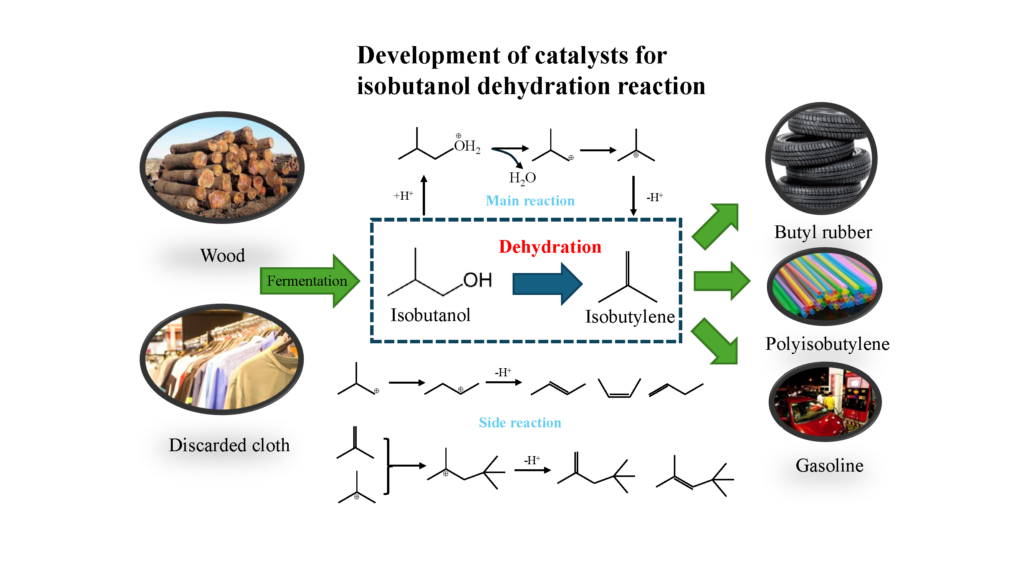自己紹介・研究目的
令和6年度4月入学/ ■SPRING事業 採択学生紹介

生命・物質・エネルギー科学プログラム
令和6年度4月 大学院入学
宋 函瑶
ソウ カンヨウ
Development of catalysts for isobutanol dehydration reaction
Hello everyone, my name is Hanyao Song, a first-year doctoral student from Tsubaki Lab. My major is Life Materials and Energy in the Graduate School of Science and Engineering. My research topic is about the development of catalysts for alcohol dehydration reaction. In recent years, with the increasing shortage of world resources, the development of non-renewable energy has become a very urgent issue and has been attracting the attention of researchers around the world. Isobutanol is a chemical product that can be obtained in large quantities by biological fermentation. Through the dehydration reaction, isobutylene, which has no natural source, can be prepared. As an important chemical raw material, isobutylene can be used to produce plastics, synthetic rubber, and a series of organic chemicals. At the same time, isobutylene can replace some non-renewable resources to a certain extent, thereby replacing some traditional gasoline and alleviating the problem of tight petrochemical resources in the world. Therefore, the reaction of isobutanol dehydration to prepare isobutylene is an environmentally friendly, effective and promising means to overcome resource scarcity and promote economic development.
Activated alumina has a good experimental effect on the catalytic alcohol dehydration reaction and is an important catalyst. By using different templates and swelling agents, some ordered mesoporous alumina catalysts are customized, and the effects of various pore catalysts on the reaction are analyzed through experimental characterization (BET, SEM, etc.). The best mesoporous alumina catalyst is screened out, and on this basis, tungsten oxide is loaded by the excess solution impregnation method to improve the catalytic activity of the alcohol dehydration reaction.
Activated alumina has a good experimental effect on the catalytic alcohol dehydration reaction and is an important catalyst. By using different templates and swelling agents, some ordered mesoporous alumina catalysts are customized, and the effects of various pore catalysts on the reaction are analyzed through experimental characterization (BET, SEM, etc.). The best mesoporous alumina catalyst is screened out, and on this basis, tungsten oxide is loaded by the excess solution impregnation method to improve the catalytic activity of the alcohol dehydration reaction.


